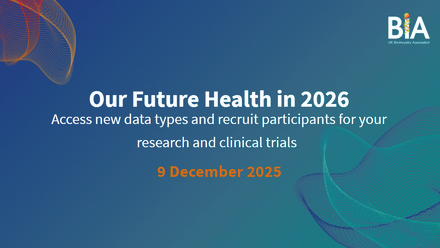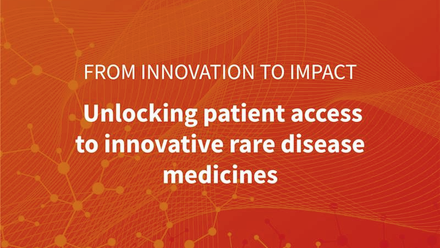The Darzi review: a techbio shift in the future of healthcare

When the new secretary of state for Health, Wes Streeting, started his role in July, he commissioned an independent review into the state of the NHS. Lord Darzi has now conducted this rapid review. While focused on the NHS, the report makes some important references to the life science sector. It also provides a blueprint for Labour’s 10-year health plan, with implications for BIA members. Dr Emma Lawrence, Senior Policy and Public Affairs Manager at BIA explains more in this blog.
The ‘critical state’ of the NHS
The report outlines the current state of the NHS, in the context of the declining health of the UK population. Darzi points to an over-focus on secondary care over primary and community care as a key issue affecting performance. Declining quality of care, ability to access care and poor health protection are also outlined in the report. Importantly, the review posits four key drivers of this falling performance. Firstly, a lack of spending on capital and technology: “A lack of capital means that there are too many outdated scanners, too little automation and parts of the NHS are yet to enter the digital era.” Secondly the impact of structural reforms resulting from the 2012 Health and Social Care Act, which saw changes in management structures. These two issues then left the NHS particularly exposed to the impact of the COVID-19 pandemic. Finally, a lack of staff engagement and patient voice is said to be affecting the service.
Turning to technology
The review identifies seven themes that should be addressed in a future plan for the NHS. The use of technology to enhance care is one of them. Darzi states that “the NHS remains in the foothills of digital transformation” and suggests that “the extraordinary richness of NHS datasets is largely untapped either in clinical care, service planning, or research.” The report sets out that there must be a technology shift to unlock productivity. The example of staff working outside hospitals and more in the community was given as one example, but expanding the use of available technologies is another. The report highlights the potential benefits of whole genome sequencing in enabling access to ‘sophisticated’ new treatments, particularly for patients with rare diseases and cancer. However, it notes that only a small proportion of eligible patients are currently benefiting from these advances in genomic testing which is contributing to “less timely” treatment.
Health, growth and prosperity
The report hooks in the Labour government's growth agenda by listing contribution to growth as a key theme for the NHS’s future. While this includes getting people back to work through improved health, he also references better supporting British biopharmaceutical companies. The decline in clinical trial activity is called out, referencing the need to take up recommendations from last year’s O’Shaughnessy review. Darzi calls out the important relationship between the NHS and our sector: “The NHS and the life sciences sector make important contributions to one another that benefit both: innovations improve the effectiveness of treatments and offer hope where treatments have not existed before.”
A plan for the NHS, with opportunities for UK Techbio
The review is an important backdrop to Labour's upcoming 10-year plan for the NHS. Prime Minister Sir Keir Starmer set out the government’s top three priorities for reform following the publication of the review. These included moving from “analogue to digital” and “being bolder in moving from sickness to prevention”. He also underlined the importance of our sector within these reforms, saying “We’re also going to throw the full weight of the British Government behind our world-leading life sciences”.
These will be important themes in the upcoming NHS plan. Improving digital infrastructure in the NHS will be welcomed by the life science sector, which will benefit from improved data quality to support discovery science. This is a key focus for the BIA through our Techbio policy agenda.
A preventative health agenda will support many genomics and precision medicine companies in our sector that are improving our ability to detect and treat disease earlier than before. We look forward to supporting the Government and the NHS in adopting innovation in the life sciences for the benefit of patients and the public.
Find out more about our Techbio community of companies that are harnessing technology in the life sciences, to bring the right treatments to the right patients at the right time.
Join us at upcoming the TechBio UK conference on 16 October at King's Place in London, where biotech meets technology to solve big challenges in health, sustainability and R&D. Learn more at www.techbio.uk






